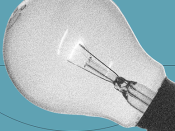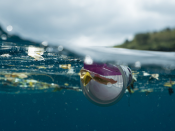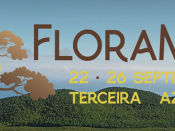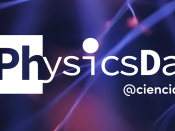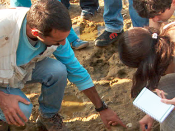Por Philipp Hess (Ifremer, Director Research Unit PHYTOX - PHYsiology & TOXins of Harmful Algae, France).
Philipp will introduce the PHYTOX unit which has been created in January 2022 and he’s leading, the laboratories, objectives and approaches of this unit which is Ifremer’s only research unit dedicated to the study of harmful algae. He will then give an overview of the EMERTOX projet and an outline of Ifremer activities in this project. He will then give an overview of recent activities at Ifremer on the emergence of harmful algae in mainland and overseas France while putting these emerging algae and their toxins in a global context. The emerging micro-algae include both epiphytic and pelagic genera of dinoflagellates, haptophytes and cyanobacteria. Toxins discussed include brevetoxins, ciguatoxins, cyanotoxins, ovatoxines, pinnatoxins, prymnesins, tetrodotoxins and yessotoxines.
Short bio: After studies of chemistry at Universität des Saarlandes (DE) and EHICS Strasbourg (FR), PhD in 1998 on organic contaminants in the marine environment (UK). Subsequently, study of algal toxins, initially focusing on domoic acid and saxitoxins. In 2001, he helped implement chemical testing for domoic acid and lipophilic toxins in parallel to mouse bioassays to combat azaspiracid shellfish poisoning (IE). He then investigated toxin isolation and reference materials for official control, facilitating legislative changes in Europe for lipophilic toxins. Since 2008, P. Hess continues his studies on phycotoxins at the French Research Institute for the Exploitation of the Seas, Ifremer. His research interests cover the biodiversity and ecological role of toxic algae as well as the detection, chemistry, diversity and impact of phycotoxins on the marine environment and human health. Since 2011, he contributes to communicating science to policy stakeholders through the European Science Foundation Marine Board WG “Oceans and Human Health”, has assisted the EU-FVO (Food and Veterinary Office) as expert at inspections of EU and third countries for compliance of shellfish production with EU regulations. Since 2011 he represents France on the Intergovernmental Panel on Harmful Algal Blooms (IOC-UNESCO), where he chairs Task Team 1 (Biotoxin Detection, Management and Regulation) and also more recently contributes to the Interagency CFP strategy implementation (since 2017). Since 2013, he directs the French Research Network GdR PHYCOTOX – Ifremer, CNRS 3659 (http://www.phycotox.fr), and since 2022 he is the director of the Ifremer research unit PHYTOX (Physiology & Toxins of Harmful Algal Blooms = HABs).
Transmissão via Zoom.



